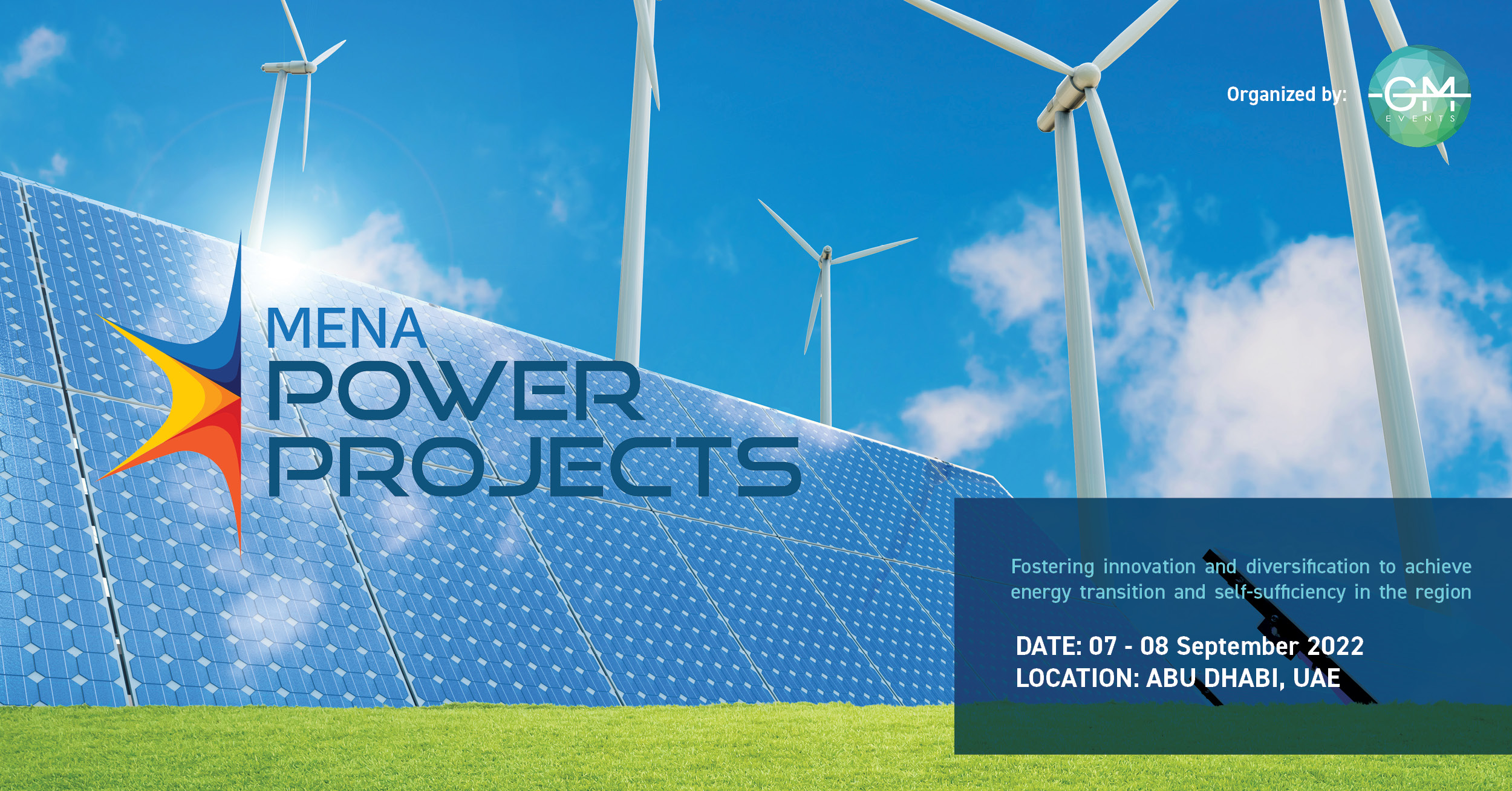
The combined committed and planned investments in the MENA power sector will exceed a total of US$250 billion including US$93 billion committed and US$157 billion planned, according to a report by Arab Petroleum Investments Corporation (Apicorp). It is the highest of all energy sectors.
Of these, nearly US$60 billion worth of power projects are being developed in Saudi Arabia, followed by Egypt where US$37 billion worth of power projects, country-wise data shows. In terms of project value, the UAE comes third with US$26 billion worth of power projects under planning and development.
More than 300 delegates including senior government officials, project owners, project management professionals, project developers, contractors, sub-contractors, technology providers, utility suppliers, industry experts and key stakeholders will participate at the MENA Power Projects Forum that will highlight the business opportunity in the power and utilities sector. Delegates at the forum will listen from more than 30 experts discussing a set of wide-ranging subjects including GCC interconnection, increasing efficiency of power generating units, green hydrogen, wind power, solar power, nuclear power projects, re-powering existing units, retro-fitting power plants with new technology, and business opportunities for the suppliers.
A number of senior government officials involved in the development of public power and utilities projects will speak at the forum and interact with the suppliers the business opportunities. More than 30 industry exhibitors will display their latest technology, products and services to secure public contracts in the power and utilities sectors.
With the theme, fostering innovation and diversification to achieve energy transition and self-sufficiency in the region, the two-day forum will also focus on the development of clean, green and renewable energy that is gaining momentum. The Pan-Arab Strategy for the Development of Renewable Energy by the League of Arab States (Arab League) created a foundation for regional co-operation to drive renewable energy deployment in the Arab world to 80 GW by 2030.
The unprecedented cost declines and lofty national renewable energy targets – which range from 13 percent to 52 percent of installed capacity by 2030 – are the two key accelerators currently fueling renewables penetration in the MENA region. The MENA region added an estimated 1.5 GW of solar power in 2020, with a further 3 GW during 2021 and almost 20 GW expected to be added over the next five years.
“Investments [in the power sector in the MENA region] in the 2021-25 period are expected to give increased allocations to the transmission and distribution sides of the value chain while maintaining investments in [power] generation to accommodate the growth in power demand. A major driver behind this trend is the need for more investments in grid reinforcements and enhanced flexibility with the rising share of renewables in the energy mix,” Apicorp said in the report.
“As power demand recovers in the medium to long term, additional capacities will be needed to cater for the growing demand and shifting demand patterns, while at the same time ensuring power system resilience, reliability and flexibility, and opening new opportunities for increased cross-border power trade.”
Dr. Bruce Stedall, Director of Asset Management, Abu Dhabi Transmission and Dispatch Company (TRANSCO), Dr. Mahmoud Al-Hader, Head of Asset Information Section, Al Ain Distribution Company, Mayure Daby, Head Net Zero Energy, Middle East, at Atkins and Faiza Al Harthi, Energy Sector Head, Oman Vision 2040 Implementation Follow-up Unit, Oman, will participate at the panel discussions.

Leila Masinaei, Festival Director and Managing Partner of Great Minds Event Management, said, “MENA Power Projects Forum is a great enabling platform that will bring local, regional and international players in one place to explore more business opportunities in the region’s growing power and utility sectors.
“The players active in the power generation, transmission and distribution sector will be able to meet with government officials, contractors, sub-contractors, consultants, suppliers, technology providers will find enough business opportunities to explore and discuss them that will keep all the players busy in the next few years.”